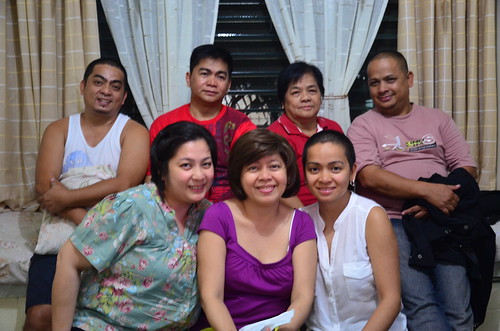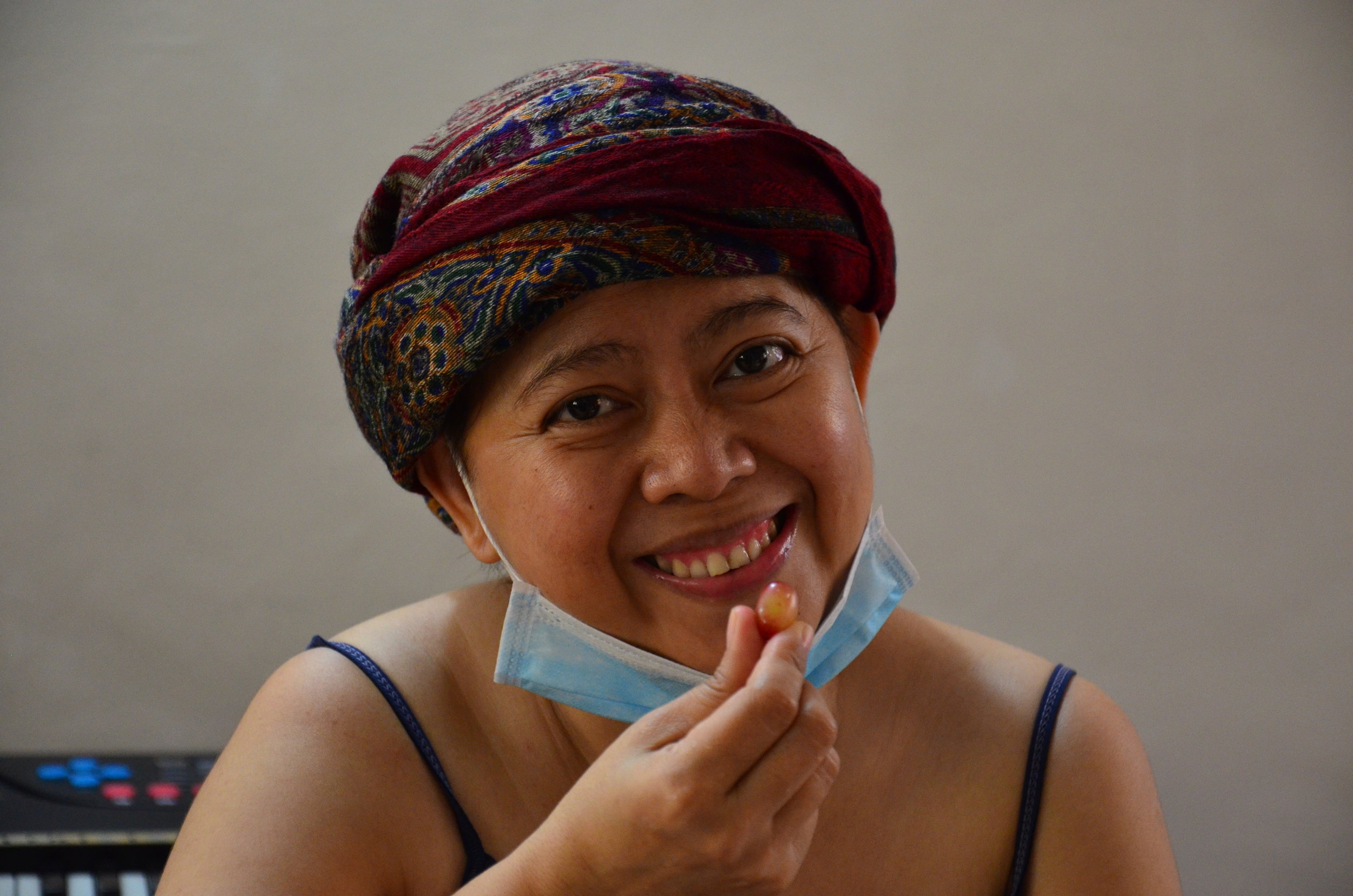Every year since 2009, Theresa Respicio has had a mammogram and breast ultrasound. That year she had a breast discharge on her left breast. As Theresa lives in Ozamiz City, she flew to Manila, had a biopsy in Medical City, and awaited the results. Fortunately, the results were in her favor. But for good measure, Theresa’s doctor advised her to have these tests every year.
It was through one of these routinary checkups that Theresa eventually found out that she had cancer.
In August 2012, Theresa was at the Medical Records Office of Medical City awaiting her results. She recalls, “When I opened the brown envelope, the very first word that I read was cancer… Is this for real?! I was suddenly numb and didn’t know where to go and who to call. My world stopped. I went to the lobby of the hospital. I didn’t know what to do. I was just standing there. I remembered the chapel they had on the second floor so I went there, and there I cried so hard. I was talking to God. My thoughts at the time was that I have cancer so I will die soon and I will be leaving my husband. Well, I said it’s okay. We do not have children. If I die soon, he will recover. There is partly a letting go. Those were my thoughts. But I do not know how to tell him this bad news. He was in Mindanao at the time.”
Theresa’s husband trembled when he received the news. Immediately, he went to one of their closest friends, who also happens to be a doctor. His advice proved fortuitous. He told Theresa’s husband not to panic, not to be overcome with fear, to read everything he can about cancer, and to write down all his questions for their doctor.
However, Theresa says, “One disadvantage of having too many friends is that they give you too many unsolicited advice which in return makes you more confused. Of course, they don’t have bad intentions but I think people need to understand that the treatment of cancer is a multi-disciplinary medical approach. You will have to have your oncologist, surgeon, radiologist, dietitians, nutritionist, and psychiatrist. The treatment of breast cancer varies from person to person. But at the end of it, you just have to make a decision for yourself, stay with it, and don’t regret it.”
Theresa was 45 years old when she was diagnosed with breast cancer on her right breast. On September 12, 2012, she had a lumpectomy on her right breast.
“My treatment protocol was to undergo six chemotherapy cycles (October 23, 2012 until Feb 7, 2013) and after that 33 days of radiation (March 7, 2013 up to April 24, 2013.) Since I am Her-2/neu positive, I also complied with the Herceptin treatment or targetted therapy of 18 cycles. All of these treatment protocols I completed at the Medical City,” says Theresa.
Chemotherapy took its toll on Theresa’s body and psyche. She was vomiting all the time. She was always tired, and she almost got dehydrated. She recalls, “Most of the time, I only wanted to be inside the room. I only wanted to talk with a selected few. I stopped looking at my Facebook. I just prayed most of the time and read books. One of the first advice that was given to me before I had my chemo is to eat even though I don’t feel like eating. I guess it’s also one of the things that helped me to sustain myself and survived the bad side effects of chemo.”
“During chemo days, I was afraid too… I was thinking, what if something bad happens to me during chemo days and my husband is away,” she says.
Her treatment called for a significant amount. Fortunately, the employee council of her husband’s company provided valuable financial assistance. Family and friends pitched in too. She adds, “The Philippine Charity Sweepstakes Office (PCSO) was of big help too. I lined up eight times there and was able to get guaranteed letters to answer for 16 vials of herceptin. All you really have to do is to have the patience to wait and line up at the PCSO office.”

Theresa says, “Cancer treatment is 10 percent medical science and 90 percent family support.”
But all’s well that ends well, and today, Theresa is cancer free. She is grateful to her husband, her family, and her friends who were always there by her side. She says, “I feel so blessed. Having survived this, I feel that it is my mission to share this experience, especially to those suffering from breast cancer, to tell them not to lost hope.”
She encourages cancer patient to join support groups, follow their doctor’s advice strictly, and not be afraid to ask for help. Theresa says, “Treatment of cancer is 10 percent medical science and 90 percent family support. Even if you have the resources but you do not have family support and understanding, things are and will still be difficult. A burden shared is a burden halved. Be open.”
“I learned that in life there are things that will come that are beyond your control. It will make you helpless at first. But when you have fully accepted your situation, it is easier to move on… Cancer is something we do not want to happen. But when it hits us, it really is difficult. One thing I learned is this: It is easy to move on if there is acceptance. You will also learn what is essential and important in life, and entrust everything to Him.”
October is Breast Cancer Awareness Month. Regular Breast Self-Examination (BSE) is one way of significantly increasing the early detection of breast cancer. Learn how to do a BSE by clicking the link to this video tutorial.


Leave a Reply